Along the Rogue River at Alter Farms, owner Jason Rambo is focused on building healthy soil microbiology. At Rebel Spirit Farms outside Eugene, co-owner Diane Downey says she is “growing better humans.” Meanwhile in Southern Oregon, Snodgrass Family Genetics is reducing its footprint by using solar energy and advanced soil and water conservation.
Since cannabis remains ineligible for federal USDA certification, a new opportunity has arisen for ecological farming practices that go beyond organic. In Oregon, farmers are pioneering techniques that surpass what’s required for traditional organic certification.
So how does the consumer know which brands are going the extra mile? Reputable certifications such as Clean Green Certified, Kind, DEM Pure, and Sun + Earth aim for transparency and consumer trust. Certified farms are recognized as environmentally responsible and biologically intelligent. But it’s important to recognize that the additional cost of certifications can be too steep for some small and medium farms who apply the same practices. Consumers should keep in mind that not all truly sustainable farms will be certified.
Oregon farmers have their own reasons for going the extra mile, but they’re also responding to consumer demand. According to a nationwide survey by Canivate, 77% of consumers want quality certifications for their cannabis, and 79% support environmental standards. In Portland, budtenders report 28% of consumers regularly request responsibly grown cannabis. Rapidly growing consumer demand for responsibly grown “clean cannabis” is changing what has often been secretive and suspect processes. At this rate, cannabis is on track to mirror the Agri food sector trends, where demand for responsibly grown products is set to triple by 2025.
With that said, here are nine Oregon brands deserving of our appreciation and support for their commitment to sustainability, community engagement, human empowerment, superior products, and a brighter future.
Rebel Spirit Cannabis

Co-owner Diane Downey acknowledges that “growing with non-organic practices can be more profitable than sustainable agriculture.” But that’s not stopping the team at Rebel Spirit Cannabis. In the words of lead grower Elliot B., farms that use imported high-salt nutrients have “no soul.” Rebel Spirit is taking things in the opposite direction by maximizing the fungal bacterial ratio for optimal uptake of nutrients in the soil. But they also look beyond the sun-grown garden. “Sustainability does not just have to do with the environment, it has to do with having a sustainable social fabric and culture,” says Diane. To that end, the farm provides organic on-site produce and meat from their chickens, ducks, and turkeys, and profit shares with the Last Prisoner Project.
East Fork Cultivars
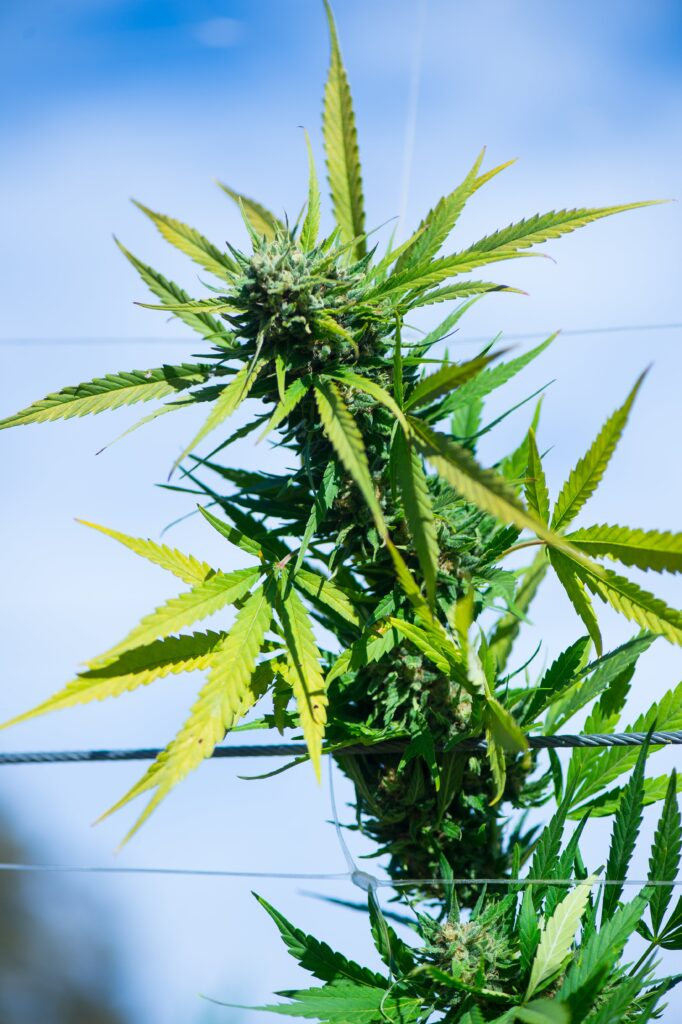
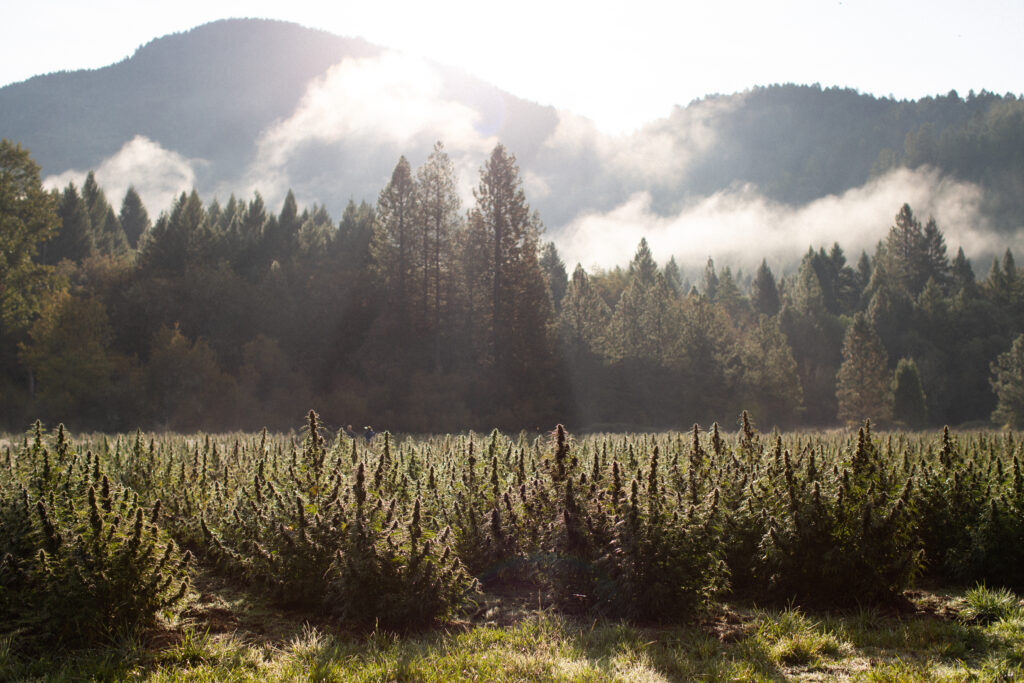
Photos: Olivia Ashton
The east fork of the Illinois River is home to East Fork Cultivars, where the farm is treated as a living laboratory for regenerative organic agriculture. Their practices establish a dynamic balance among microbial life in soil while creating closed loop systems that require significantly less input. The tier II sun grown farm is Sun + Earth certified and utilizes Korean natural farming techniques. Rooted in a commitment to the environmental and social responsibility, this farm grows high-quality cannabis medicine, organic produce for a local food bank, and native seeds for the Understory Initiative. Electric vehicles are used for farm work and LED lighting in the indoor nursery. The canopy is rotated to maintain soil health and structure, with a nitrogen fixing cover crop preventing erosion and maintaining diversity of creatures.
Gud Gardens
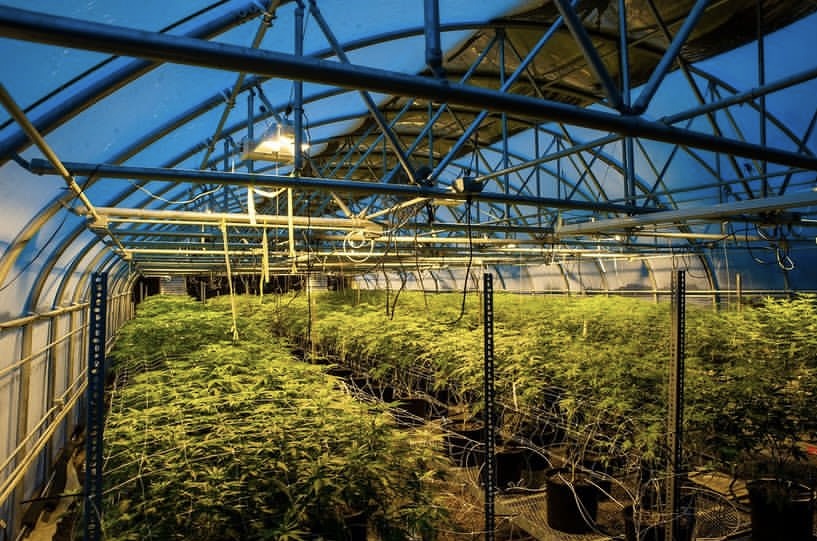
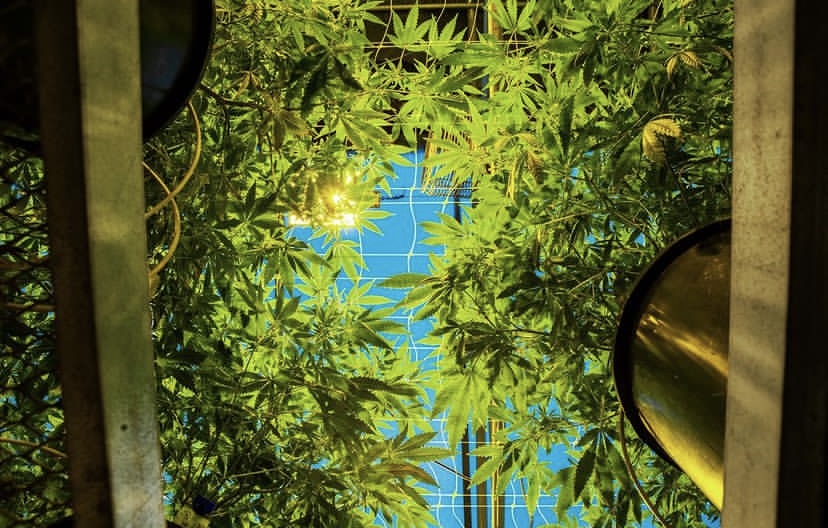
Images: @Gudgardens Instagram
Founded in 2017, this female-owned and operated recreational farm now has five licenses. Gud Gardens practices indoor, outdoor, and greenhouse cultivation. We spoke with owner Jessica Clements, who credits her location on the Rogue River as extra incentive for care in all applications. Healing land previously used for hay farming, they build soil with organic matter and straw and barely need to amend. This Clean Green Certified farm commits to a five-year pollinator program and proper land use.
TreeTop Gardens
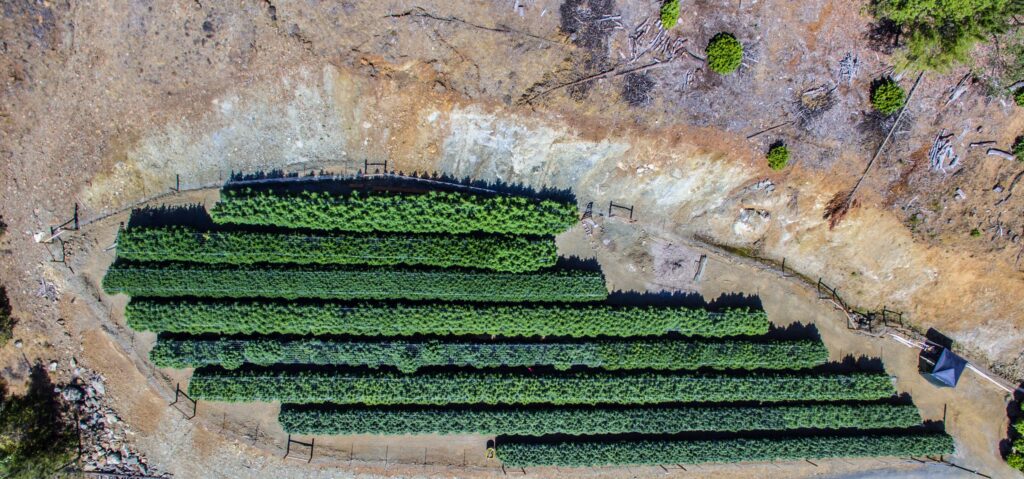
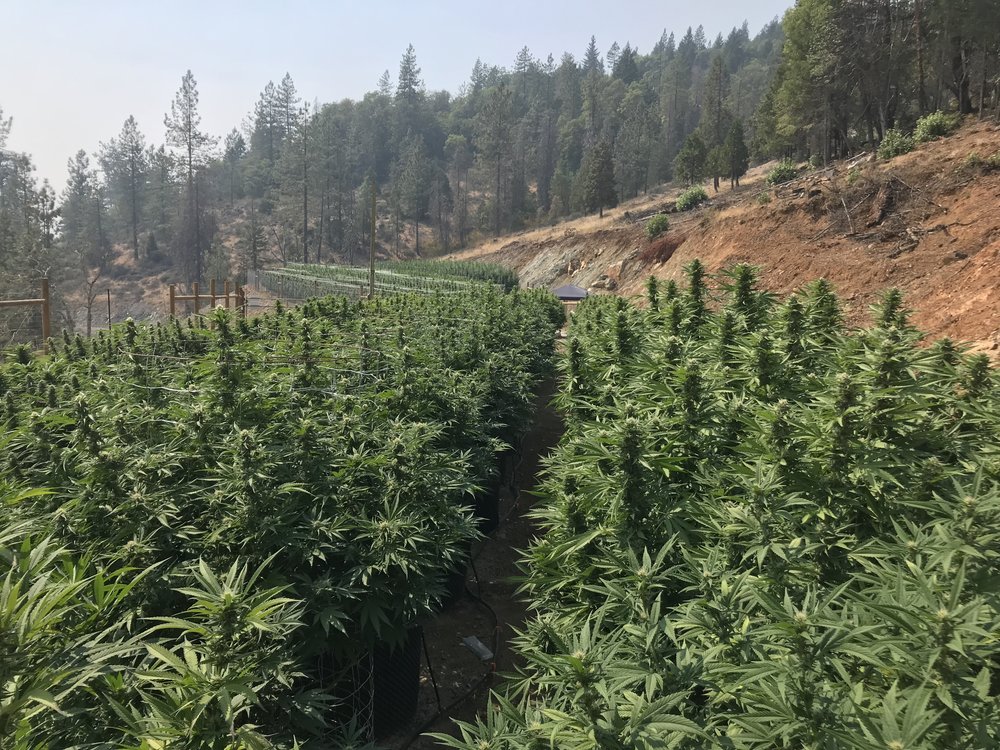
Images: Treetopgardens.com
This Tier II operation has 1,500 square feet of outdoor canopy with indoor rooms for phenotype selection. Co-owner Becky came from a medical background, first healing herself, then growing for patients whose feedback inspired her life’s work. (One patient with PTSD was able to get off eight different medications.) Becky has brought Tokeativity, a global feminist community for active cannabis culture and cannabis empowerment to southern Oregon by hosting local events. As TreeTop Gardens expand, they take pride in working to close loops and utilizing spring water, companion planting, and beneficial insects.
Liontree Farms
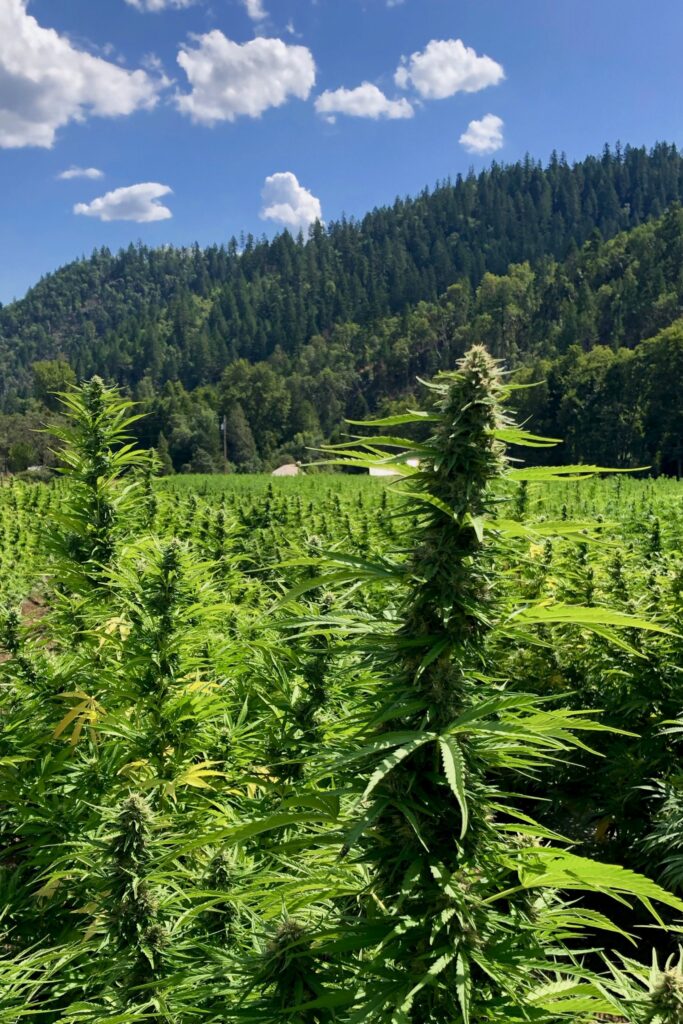
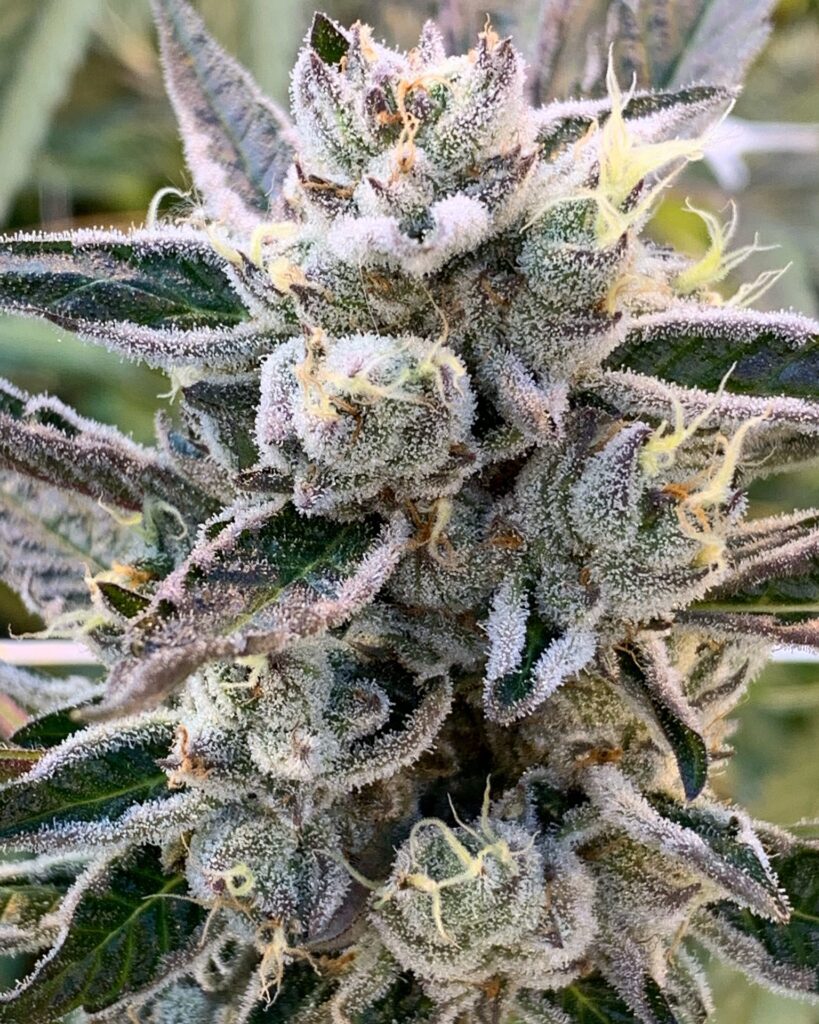
Images: Liontreefarms.com
Family-owned by Aaron and Britney Ward, who pioneered the industry by obtaining one of the first recreational licenses in Oregon, Liontree Farms uses zero synthetic nutrients or harmful chemicals. Plants are harvested at the prime point of self-expression and slowly cured to perfection. These methods preserve various bioactive compounds and the integrity of the product. Benefiting from a long history of sun grown specialization that minimizes the carbon footprint, their gardens are cultivated with “high vibrational intention.”
Snodgrass Family Genetics
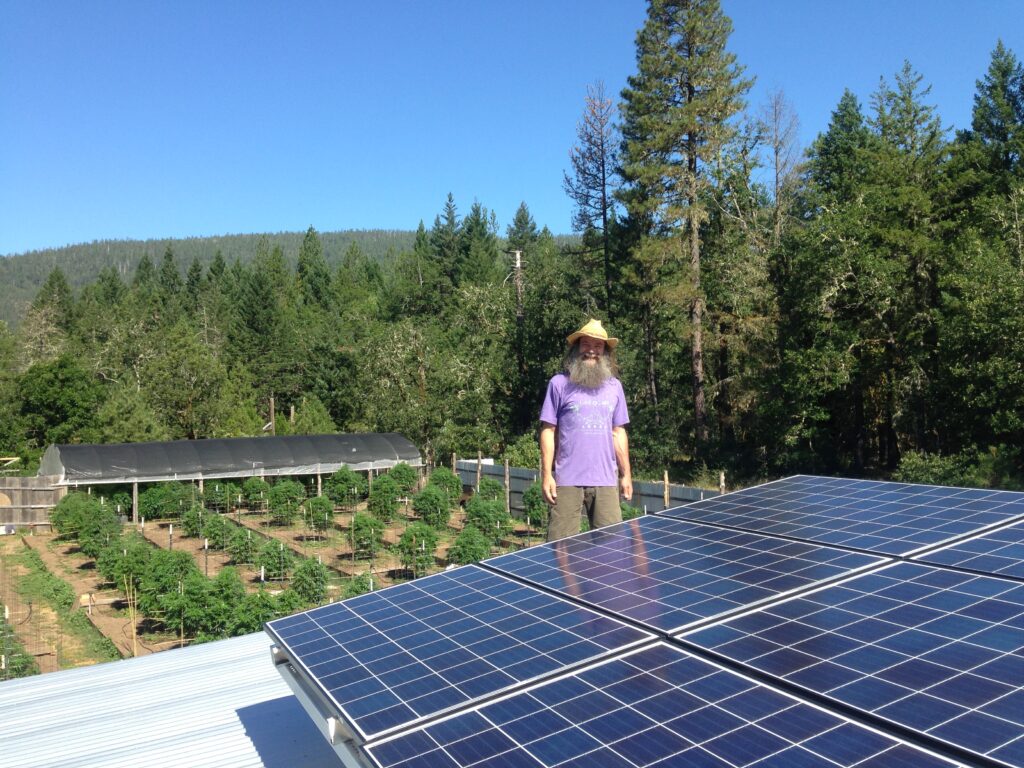
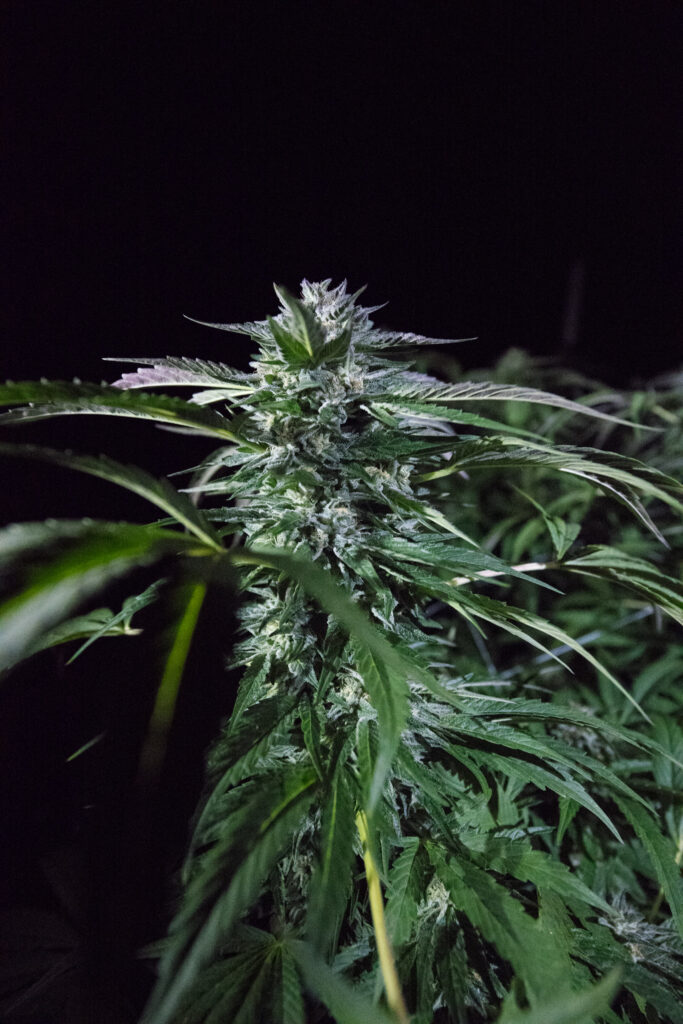
This outdoor family farm has healed land that was once a clear cut. They now grow grand champion plants in the soil they have built, and employ advanced soil conservation and remediation techniques. The owners have a background in biodynamic and organic gardening, and Snodgrass Family Genetics is Clean Green and DEM pure certified. They employ solar energy, water conservation, closed-loop systems and natural pest control. They also donated 15,000 veggie starts and seeds to the local community last year.
Ananda Farms
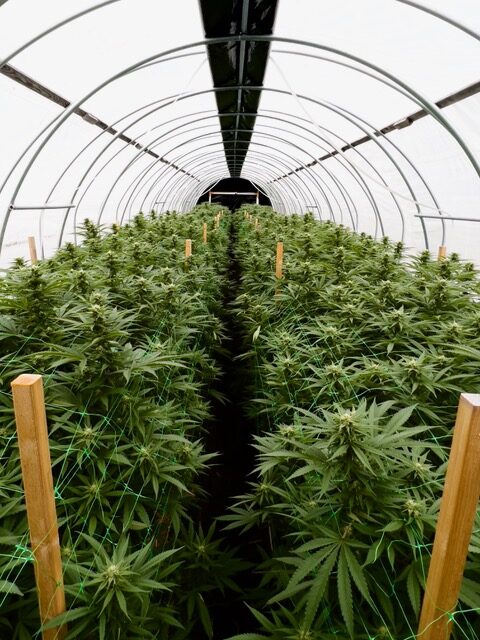
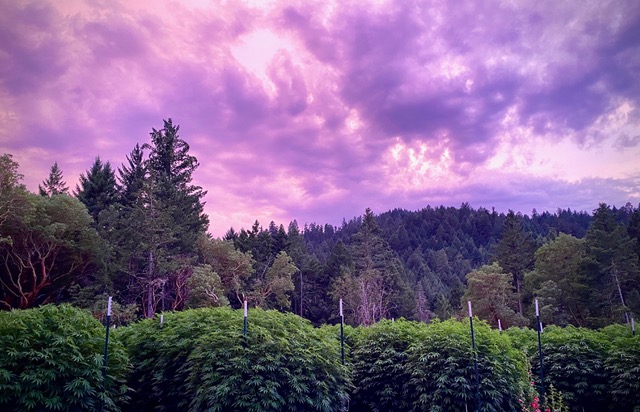
Eric Lieb started Ananda Farms, a tier I greenhouse and sun grown operation, in 2016. Eric credits the three Ts: tilth, terroir, and terpenes, as the winning combination for growing fine craft cannabis. Ananda Farms is Clean Green certified, pays living wages to a small local team, and is in an ideal geological location that uses aquifer-sourced water.
Cannassentials
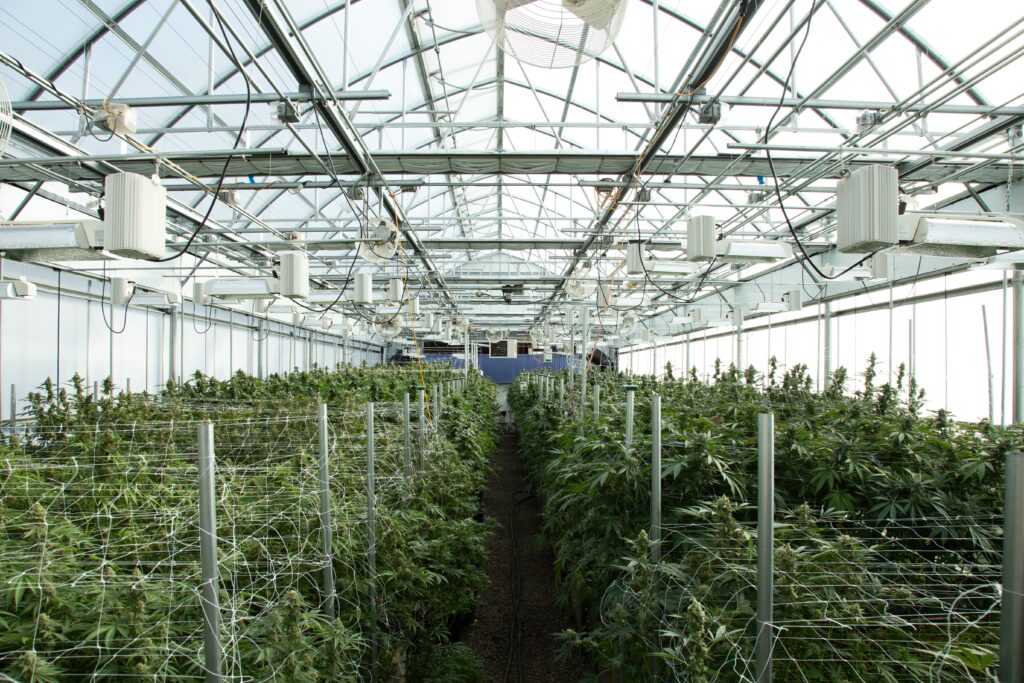
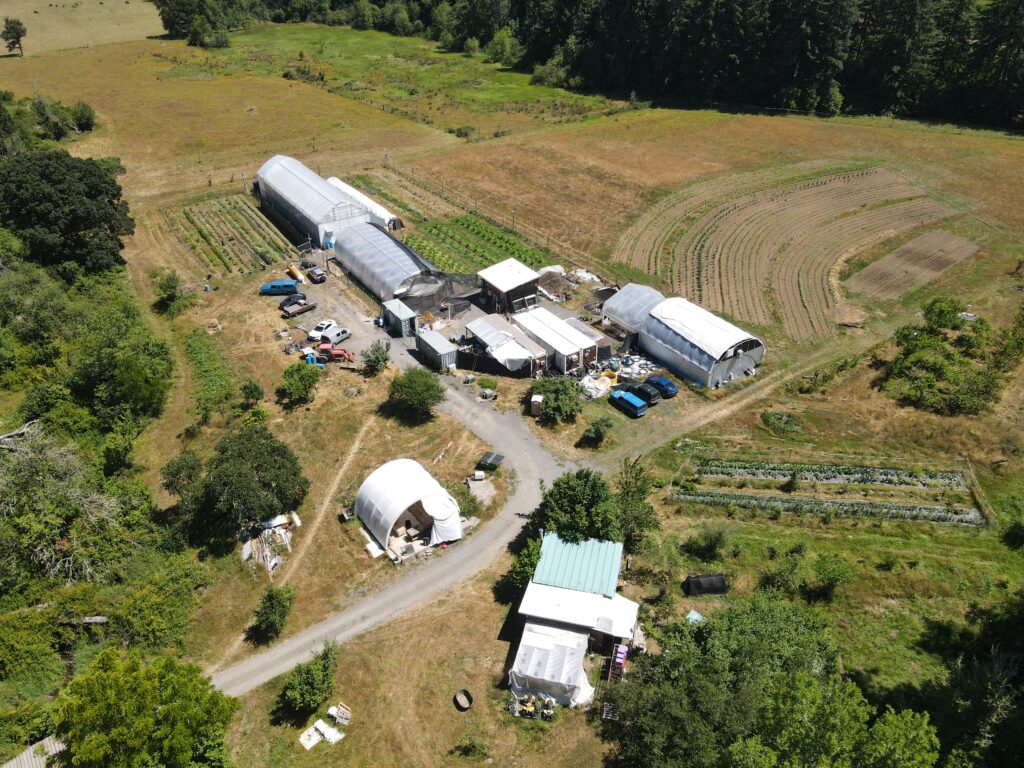
Co-owned by cousins Shane and Myron Chadowitz, Veneta’s Cannassentials is DEM pure certified and has six closed-loop systems. They brew sprouted seed teas, ferment blends crafted with ingredients from the farm, utilize geothermal heating and cooling, plant cover crops to improve tilth and fertility, and practice vermiculture to create worm castings. It’s true handmade farm-to-table goodness.
Alter Farms
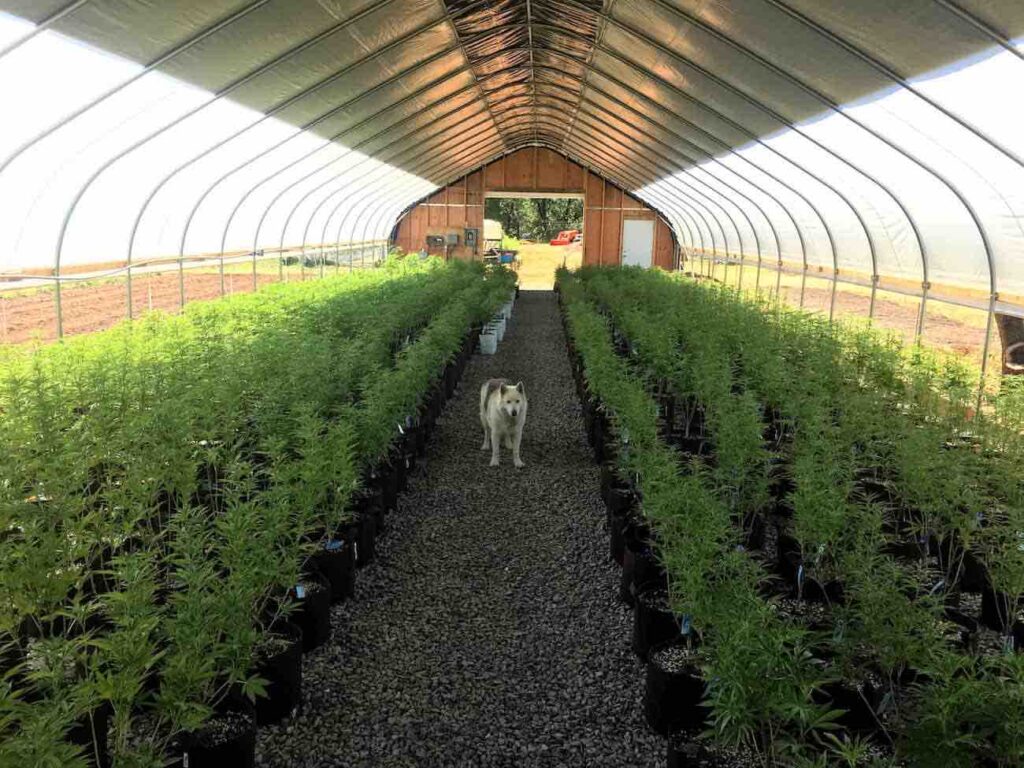
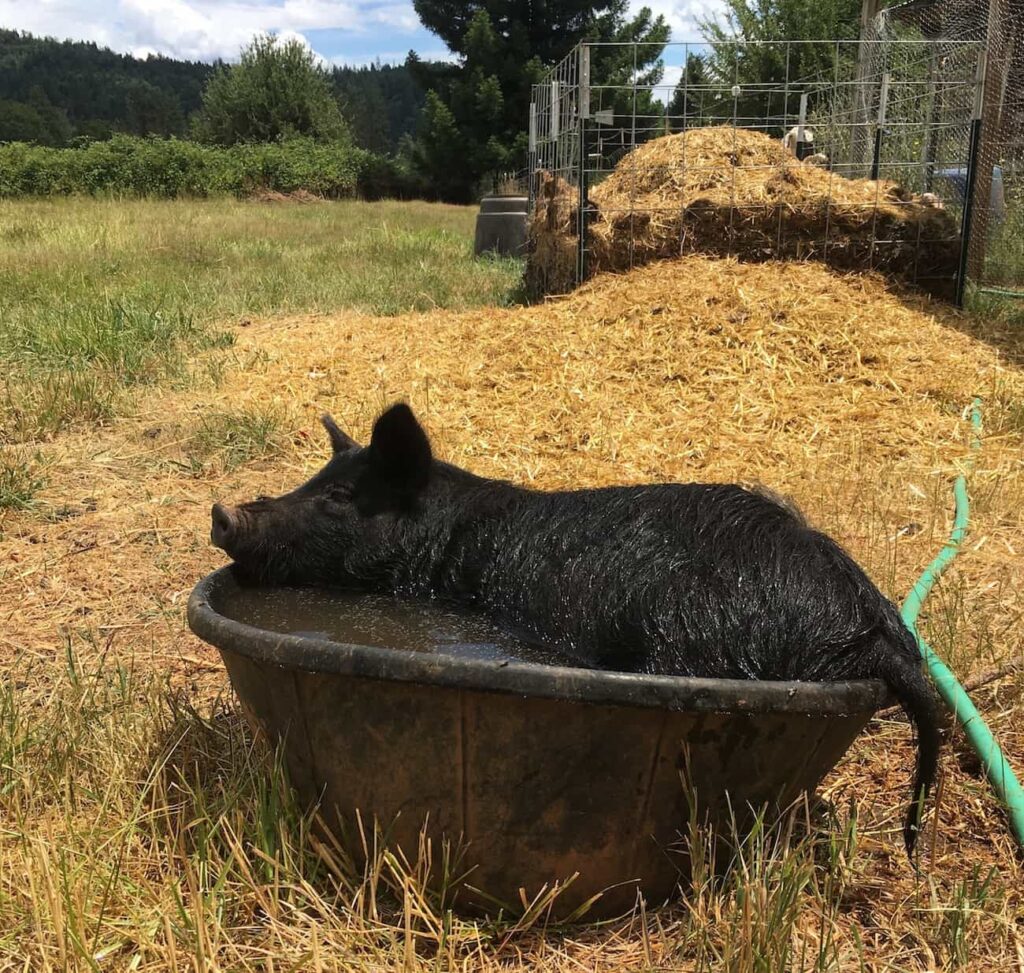
Images: Alterfarms.com
Located in Merlin, Alter Farms uses sun, water, living soil, and nothing else. Jodi Haines and Jason Rambo have cultivated soil with a high clay content to grow award-winning craft flower. The farm is doing research with Portland State University that seeks to illuminate the relationship between terroir and cannabis. Committed advocates for the intersection of sustainable business and farming, this power couple also run a local farm-to-table restaurant.
Note: The featured image for this article is from East Fork Cultivars by Olivia Ashton


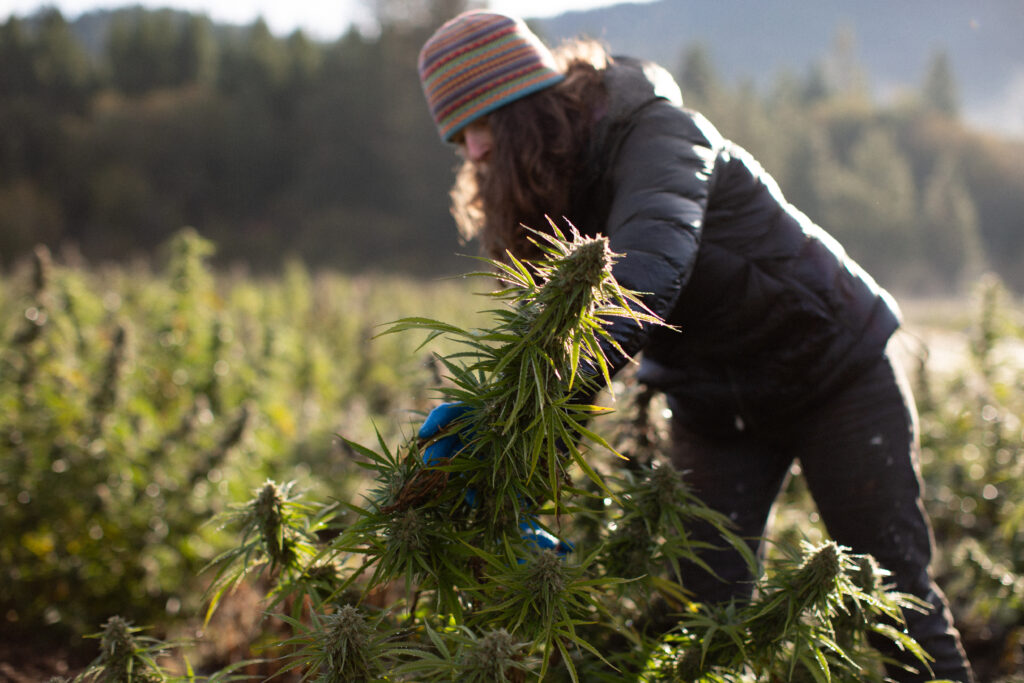

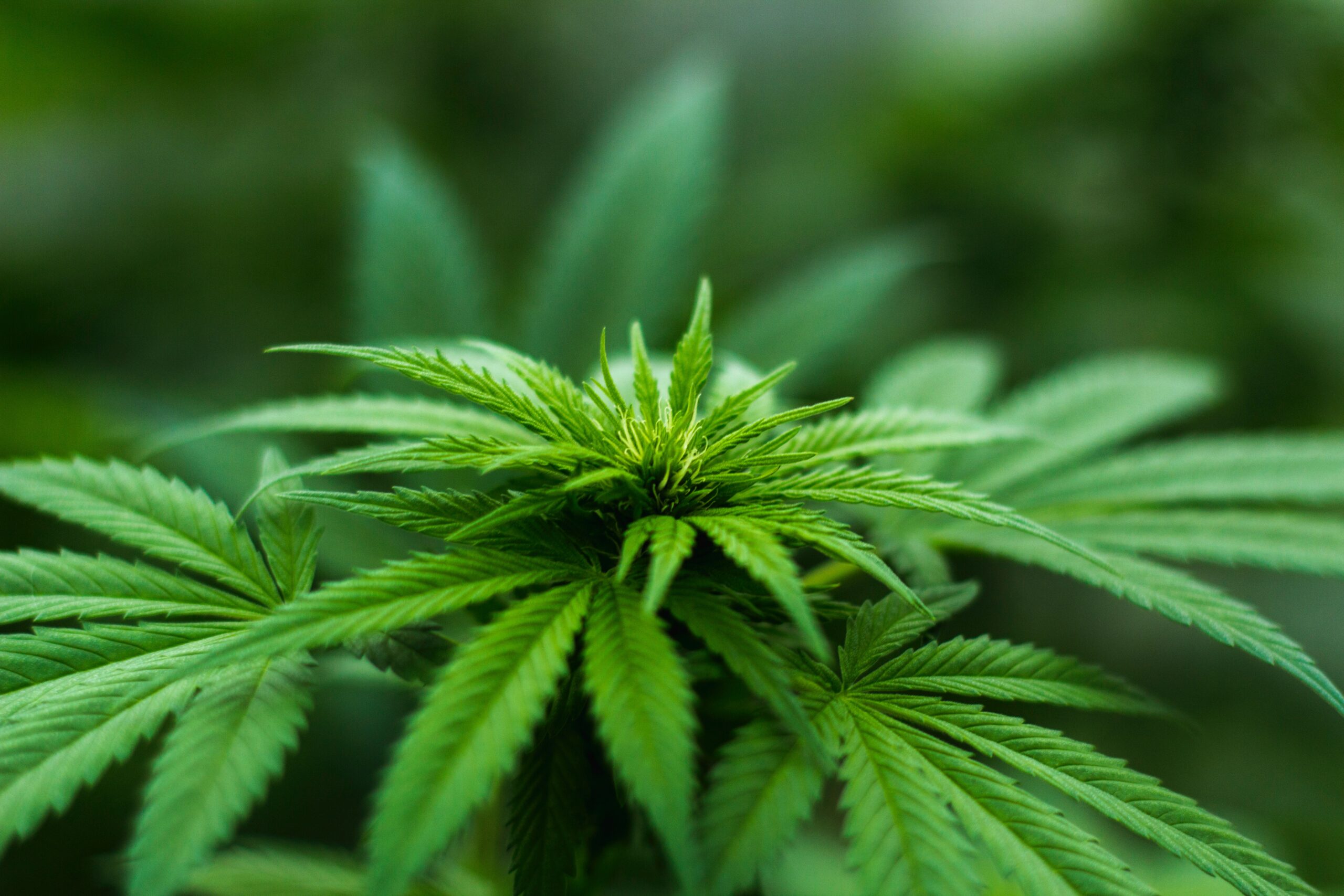

1 thought on “9 Oregon cannabis farms that are beyond organic”
Pingback: Oregon Cannabis Companies "Beyond Organic" | Apex Trading